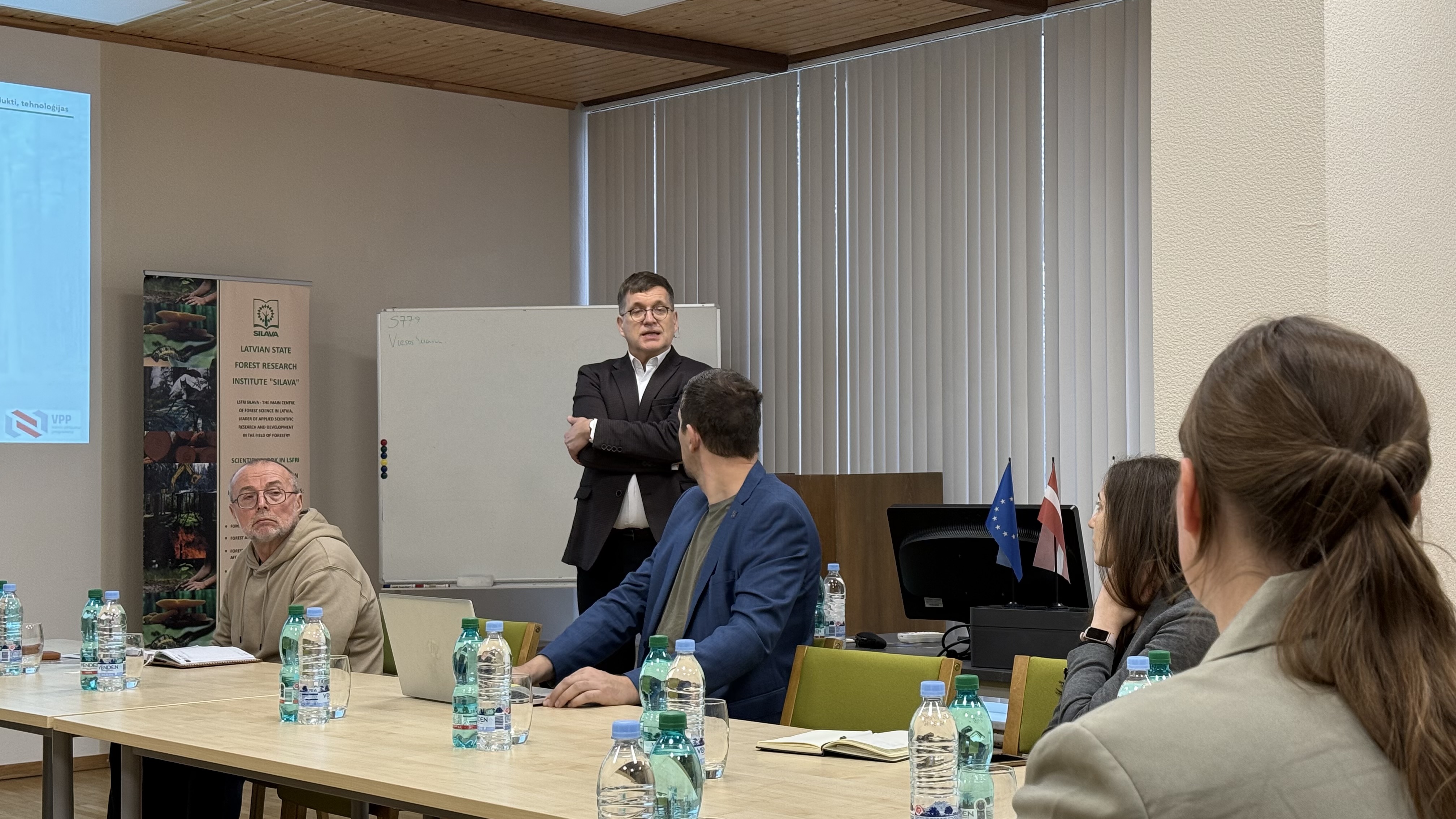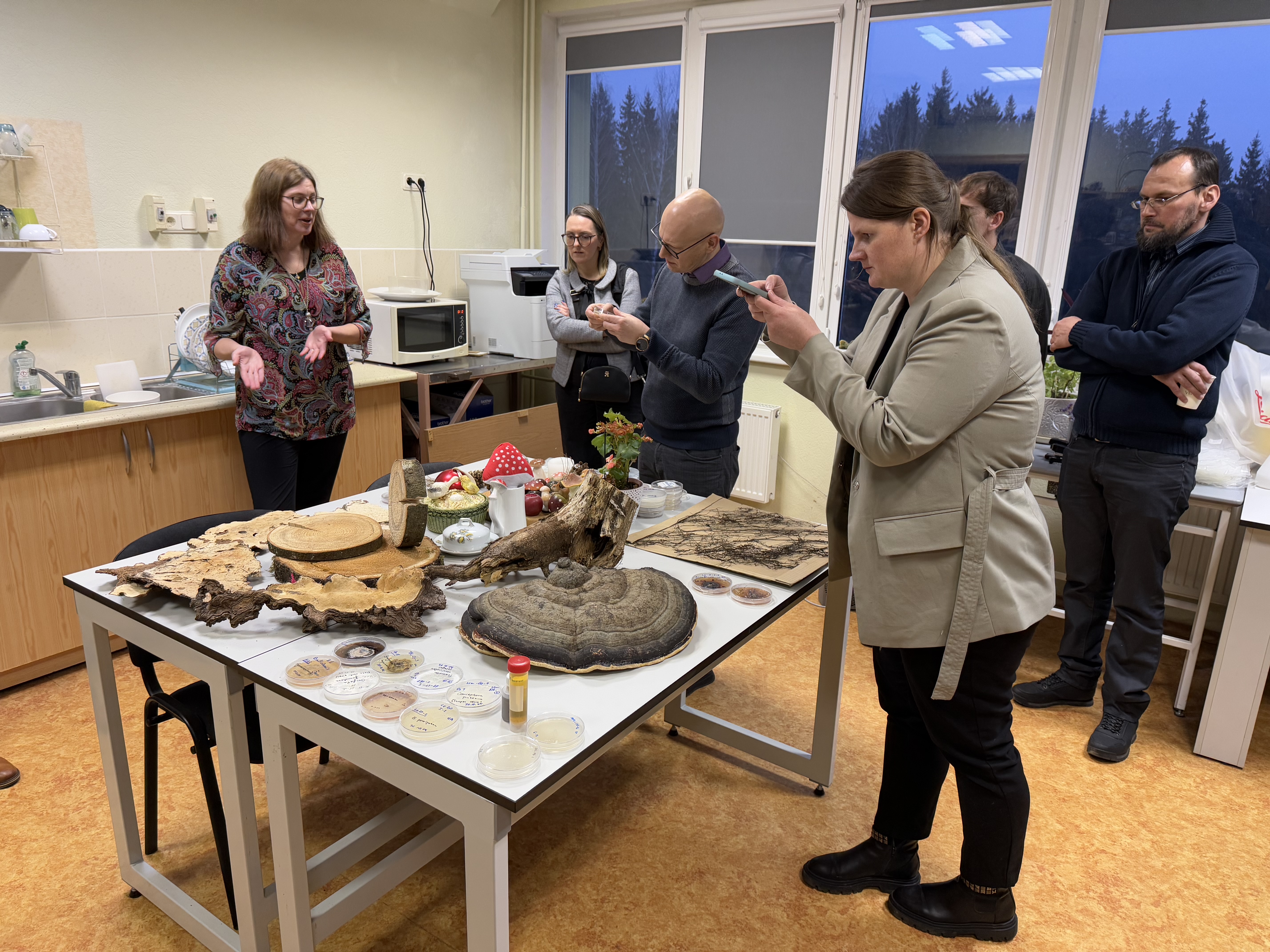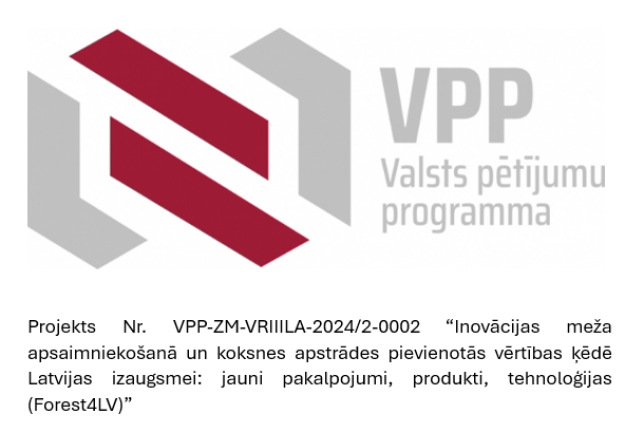Latvian Scientists Present Progress of the National Research Program “Forest4LV”

The Latvian State Forest Research Institute “Silava,” the Latvian State Institute of Wood Chemistry (LSIWC), and the Latvian University of Life Sciences and Technologies (LBTU) have joined forces to implement the National Research Program (Nr. VPP-ZM-VRIIILA-2024/2-
The goal of this program is to develop sustainable approaches to forest management in Latvia and create innovative solutions for wood processing technologies.
During a project progress seminar held earlier this year, the first achievements made within the initial four months of the program were presented.
The scientific leadership of the NRP is overseen by Dr. Uģis Cābulis, Deputy Director of the Latvian State Institute of Wood Chemistry and Head of the Polymer Laboratory. Under his guidance, the program addresses several critical tasks related to the development of Latvia’s forestry sector and its adaptation to future challenges.

NRP Forest4LV – Innovations in Forest Management and the Wood Processing Value Chain for Latvia’s Growth led by Dr. sc. ing. Uģis Cābulis.
The NRP has a multifaceted objective – focusing on improving forest ecosystem health, preserving biodiversity, and developing innovative wood processing technologies. It also includes scenario modeling to assist forest sector stakeholders in making data-driven decisions while promoting sustainability and economic growth.
Achievements and Innovations
Within the first months, the program’s partners have already achieved significant milestones. Researchers from the Latvian State Institute of Wood Chemistry have focused on the development of new technologies and products. Their research includes exploring small-diameter and juvenile wood, developing thermal modification technologies using nitrogen to expand wood applications in construction, and studying the use of forestry products for green chemistry. Other advancements include technology for extracting bioactive compounds from bark, developing natural composite materials for furniture and construction, and creating thermally stable, eco-friendly rigid polyurethane foam. Researchers have also designed polymer composite materials with high renewable content and environmentally friendly materials for building finishes, utilizing forestry residues. Innovative solutions have been developed, such as chemically pretreated densified wood for osteosynthesis implants and biotechnological approaches for producing biological plant protection agents.
Meanwhile, the Latvian State Forest Research Institute “Silava” has focused on analyzing forest ecosystem data. Their studies highlight the significance of deadwood and microhabitats for biodiversity conservation and assess the impact of climate change, especially factors affecting forest health, such as wildfires and pests. The institute is also developing socioeconomic models to evaluate the economic and environmental benefits of various forest management approaches.
The research conducted by the Latvian University of Life Sciences and Technologies focuses on innovative applications of wood materials. This includes modeling the properties of honeycomb materials, optimizing the technological properties of dimensionally stable lightweight panels, and utilizing bio-binders in the production of thermo-modified veneers. These solutions promote the development and use of sustainable materials in construction. LBTU also emphasizes student involvement, fostering a new generation of specialists ready to continue this work in the future.
Following the presentations, “Silava” organized a tour of its modern laboratories, providing guests with a closer look at their work. Participants visited the Plant Physiology Laboratory, which studies plant responses to environmental factors; the Molecular Genetics Laboratory, specializing in genetic research; the Forest Mycology Laboratory, which examines the impact of fungi and pathogens on forests; and the Forest Environment Laboratory, focusing on climate change and other ecological factors. The tour offered practical insights into how scientific research supports sustainable forest management.

Dr. biol. Dārta Kļaviņa (Latvian State Forest Research Institute “Silava”) discusses the Forest Mycology Laboratory.
The Impact and Future Plans of NRP Forest4LV
The NRP has already developed more than 20 models that provide essential insights into the productivity, regeneration, and climate risks of Latvian forests. Over 15 scenarios are being analyzed to evaluate the impact of sustainable forest management on local communities and the economic development of the sector.
In the next phases of the program, the technologies developed will be refined and subjected to practical testing. Plans also include publishing research findings in international scientific journals and organizing conferences to foster collaboration between science and industry. The NRP ambitiously aims to expand cooperation with international organizations and ensure that the innovations developed become practical solutions for the local and global forestry sectors.
The “Forest4LV” initiative already demonstrates the ability of Latvian scientists to create sustainable and innovative solutions that will help the country’s forestry sector remain competitive and adapt to future challenges. This initiative is a step forward in both environmental protection and economic growth.


